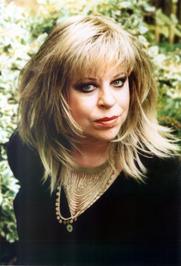Read only the Best
 This, for me, is an essential writing tip!
This, for me, is an essential writing tip!
Zat Rana wrote, in an article for QUARTZ, published on 18 October, 2017:
QUALITY OVER QUANTITY: You “become” what you read.
“. . . I don’t think most of us internalize quite how much, and sometimes how subtly, what we read determines who we become.
“Input shapes your output.
“Language is our primary tool of communication. It’s how we build and organize our knowledge, and it’s what allows us to interact with each other.
“Outside of direct experience, it’s also largely how we create our perception of reality. The information your senses absorb through your surroundings combine to create linguistic (and subconscious) models in your mind about how the world works and the best way to interact with it.
“One part of this occurs through verbal conversation, or listening to something in general, but for most knowledge workers and for the average person in developed countries a larger part of it is directly a result of what we consume [via reading].
You are what you read. The information that you input into your mind informs your thinking patterns, and it influences your output in the form of the decisions you make, the work you produce, and the interactions you have.

“That’s a huge incentive to prioritize a block of time to think about what and how you consume [read], and whether or not you read adequately relative to the progress you want to make. It’s a reason to maybe pause and consider if you can do anything to purposefully shape the direction of your mind.
“Naturally, input doesn’t necessarily mean quantity. The correlation between how much you read or consume and what you can do or who you become begins to even off after a certain point, and more isn’t always better.
“This is entirely about what the quality of your predominant sources of input [books] are, and the importance of those can’t be overstated.”

Professor JRR Tolkien
Which authors have influenced my own writing over my lifetime?
Primarily, Professor JRR Tolkien and Tanith Lee, but also (in no particular order) –
Nicholas Stuart Gray, George MacDonald, John Keats,
William Shakespeare, Isaac Asimov, Eleanor Farjeon,
C.S. Lewis, Arthur C. Clarke, E. Nesbit,
Andre Norton, Ann McCaffrey, Charles Dickens,
George Eliot, Terry Pratchett, Jane Austen,
Ray Bradbury, Susannah Clark, Thomas Hardy,
Simon Winchester, Dianna Wynne-Jones, Douglas Adams,
Alan Garner, CS Lewis, Andrew Lang,
William Allingham, Hilda Lewis, Charles Kingsley,
Emily Brontë, Juliet Marillier, William Morris,
Ursula LeGuin, Jackie French, Walter de la Mare, and more.

Tanith Lee
All these writers and poets have strongly influenced my inner worlds and contributed, in their own way. to the creation of the Bitterbynde Trilogy. In addition to giving me inspiration, they have also given me joy, peace, excitement, wonderment and delight. They have increased my vocabulary and helped me to look at the world in new ways.

 This, for me, is an essential writing tip!
This, for me, is an essential writing tip!